Shih-Poo Guide: Care, Traits & Training Tips
Did you know that the Shih-Poo, a crossbreed between a Shih Tzu and a Poodle, is gaining popularity as a beloved family pet? While not yet officially recognized as a breed by the American Kennel Club, the Shih-Poo combines the best qualities of both parent breeds, making it an adorable and lovable companion.
Key Takeaways:
- The Shih-Poo is a popular mixed breed, combining the Shih Tzu and Poodle.
- Shih-Poos have a friendly and outgoing temperament, making them great family pets.
- Regular grooming, training, and veterinary care are important for their health and well-being.
- Finding a reputable breeder or considering adoption are two options when looking for a Shih-Poo.
- Proper care and love will ensure a happy and balanced relationship with your Shih-Poo.
Shih-Poo Characteristics and Appearance

The Shih-Poo is a unique crossbreed that inherits traits from both its parent breeds. When it comes to appearance, Shih-Poos can vary in size and coat type, making each one special in their own way.
On average, Shih-Poos weigh between 8 and 18 pounds, and they reach a maximum height of around 10 inches. Their small size makes them ideal for individuals and families living in apartments or smaller homes.
What sets Shih-Poos apart is their coat, which can be either straight or curly. Their wavy fur comes in a variety of colors, including white, black, and brown, adding to their overall charm and appeal. One notable feature of the Shih-Poo is their round, expressive eyes that are sure to melt your heart.
Another noteworthy characteristic of the Shih-Poo is the potential hypoallergenic nature of their coat. While they cannot guarantee a true hypoallergenic experience for all individuals, their Poodle lineage often leads to less shedding and reduced allergenic dander.
To help you visualize the adorable appearance of a Shih-Poo, take a look at the image below:
Shih-Poo Health and Care
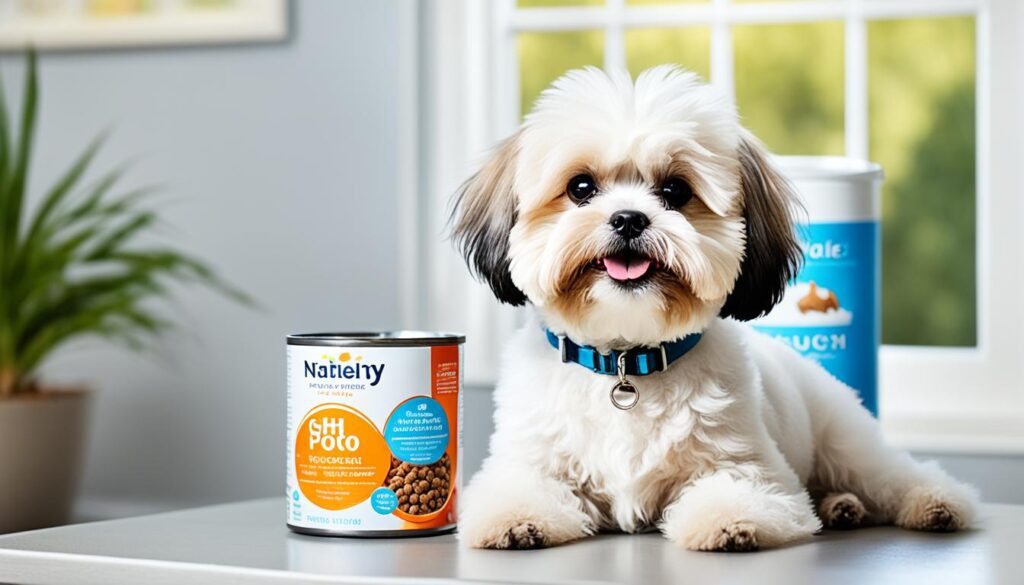
Shih-Poos are generally healthy dogs with a lifespan of 10 to 17 years. However, they can inherit certain health conditions from their parent breeds. Common health concerns in Shih-Poos include:
- Hip dysplasia
- Patellar luxation
- Periodontal disease
- Eye problems such as cataracts and dry eye syndrome
To ensure the health and well-being of your Shih-Poo, it is important to provide them with regular veterinary check-ups, proper care, and attention. Here are some key factors to consider:
- Diet: Feed your Shih-Poo a well-balanced diet that is appropriate for their age, size, and health condition. Consult with your veterinarian for specific dietary recommendations.
- Exercise: Regular exercise is important to keep your Shih-Poo physically and mentally stimulated. Daily walks and playtime are essential.
- Dental Care: Dental hygiene is crucial for preventing periodontal disease. Brush your Shih-Poo’s teeth regularly and schedule professional dental cleanings when needed.
- Grooming: Shih-Poos have a low-shedding coat that requires regular grooming to prevent matting. Brush their fur regularly and schedule professional grooming sessions as needed.
Regular veterinary check-ups, proper diet, exercise, dental care, and grooming are essential for maintaining the health and well-being of your Shih-Poo.
By prioritizing your Shih-Poo’s health and providing them with the care they need, you can enjoy many happy and healthy years together.
Shih-Poo Diet and Nutrition

Feeding a Shih-Poo requires a balanced and nutritionally complete diet suitable for small dogs. It is important to ensure that their meals provide all the necessary nutrients to support their overall health and well-being.
When determining the specific feeding plan for your Shih-Poo, it is recommended to consult with a veterinarian. They can take into account factors such as age, weight, and any specific health concerns your dog may have. Veterinarians can provide valuable guidance on selecting the right type and amount of food for your Shih-Poo, ensuring they receive the proper nutrition they need.
For Shih-Poo puppies, it is crucial to establish a feeding routine that includes more frequent meals. This helps prevent hypoglycemia, a condition that can occur due to their small size and high energy levels. By dividing their daily food intake into multiple meals, you can ensure that their blood sugar levels remain stable throughout the day.
It is essential to monitor your Shih-Poo’s calorie intake to prevent obesity. Obesity can lead to various health issues such as joint problems and heart disease. Feed your Shih-Poo the appropriate amount of food based on their size, activity level, and age. Regularly reviewing their body condition and consulting with a veterinarian can help you adjust their diet accordingly.
Treats are an enjoyable part of a Shih-Poo’s diet, but it is important to factor them into the daily calorie count. Excessive treat consumption can contribute to weight gain and nutritional imbalances. Choose treats that are specifically formulated for small dogs and use them as rewards during training sessions or as occasional snacks.
In some cases, supplements or specialized diets may be recommended for Shih-Poos with specific health conditions. If your Shih-Poo has any dietary restrictions or health issues, consult with your veterinarian to determine if any modifications or additional supplements are necessary to meet their unique nutritional needs.
Benefits of a Balanced Diet for Shih-Poos
A balanced diet plays a crucial role in promoting the overall health and longevity of your Shih-Poo. Here are some of the key benefits:
- Optimal Growth and Development: A balanced diet provides the necessary nutrients for proper growth and development, ensuring that your Shih-Poo reaches their full potential.
- Healthy Weight Management: Feeding the right amount of food and monitoring calorie intake helps prevent obesity, reducing the risk of weight-related health issues.
- Improved Digestive Health: A balanced diet supports a healthy digestive system, reducing the risk of gastrointestinal problems and promoting efficient nutrient absorption.
- Strong Immune System: Proper nutrition helps strengthen the immune system, making your Shih-Poo more resistant to illnesses and diseases.
- Shiny Coat and Healthy Skin: A balanced diet rich in essential fatty acids promotes a shiny coat and healthy skin, enhancing your Shih-Poo’s appearance.
Providing your Shih-Poo with a well-balanced diet and addressing their specific nutritional needs will help ensure that they lead a happy, healthy, and fulfilling life.
Shih-Poo Behavior and Training
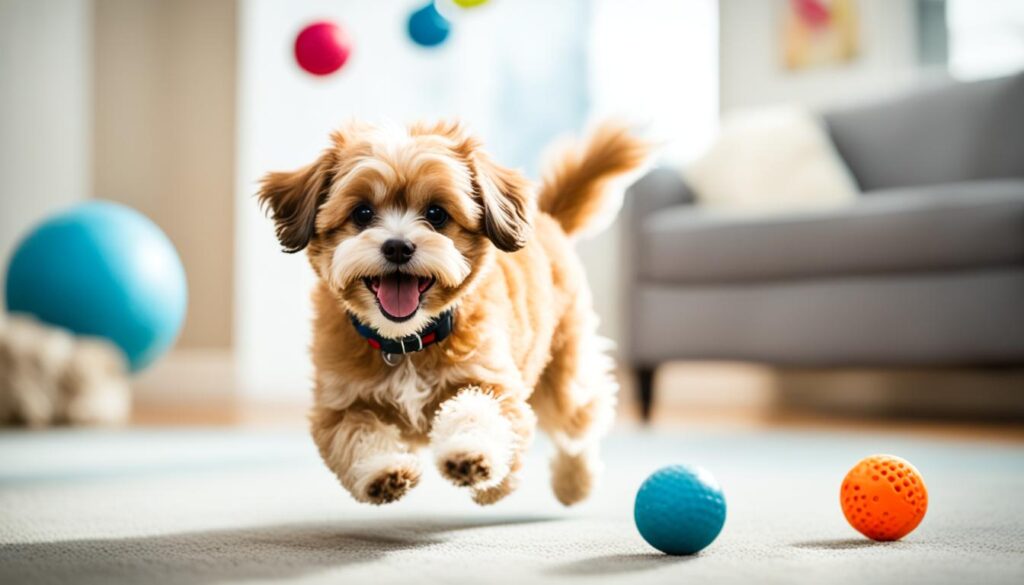
Shih-Poos are beloved for their friendly and outgoing temperament. However, shaping their behavior through proper socialization and training is essential. These intelligent dogs can be easily trained using positive reinforcement techniques, which involve rewarding desired behaviors with treats, praise, and affection. It is important to note that Shih-Poos may inherit some stubbornness from their Shih Tzu parent, so patience and consistency are key in their training process.
Regular mental stimulation, exercise, and positive reinforcement training methods are essential in ensuring a well-behaved and happy Shih-Poo. Mental stimulation can be achieved through interactive toys, puzzle games, and obedience training sessions. Regular exercise, such as daily walks or playtime in a secure yard, helps keep them physically fit and mentally satisfied. Positive reinforcement training methods, including rewards and praise, help foster a strong bond between the owner and the dog, making the training experience enjoyable for both.
It is important to note that harsh training methods or punishment-based techniques should be avoided, as they can lead to fear or anxiety in the dog. Shih-Poos respond best to gentle guidance and positive reinforcement. Consistency is also crucial, as these dogs thrive in a predictable environment with clear rules and expectations.
“Positive reinforcement training techniques, such as using treats and praise, are highly effective in shaping a Shih-Poo’s behavior. By focusing on rewarding desired behaviors, we can encourage their natural intelligence and eagerness to please.”
Training sessions should be kept short and frequent to maintain the dog’s interest and attention. Breaking down commands into small steps and gradually increasing difficulty can help ensure successful learning. Remember to be patient and celebrate even small victories during the training process.
Overall, proper behavior and training play a significant role in the development of a well-rounded and obedient Shih-Poo. By providing them with the necessary mental stimulation, exercise, positive reinforcement, and consistent training, owners can shape the behavior of their Shih-Poo and enjoy a fulfilling and harmonious relationship.
| Training Tips | Benefits |
|---|---|
| Use positive reinforcement techniques | – Builds a strong bond between owner and dog – Encourages desired behaviors |
| Provide regular mental stimulation | – Prevents boredom and destructive behaviors – Stimulates their intelligence and cognitive abilities |
| Engage in regular exercise | – Promotes physical health and fitness – Helps burn off excess energy |
| Maintain consistency in training | – Establishes clear rules and expectations – Avoids confusion and reinforces learning |
Shih-Poo Grooming Guide
Keeping your Shih-Poo looking their best requires regular grooming to prevent matting and maintain their beautiful coat. Despite being low-shedding, their locks still need some attention. Daily brushing is recommended to keep their fur tangle-free and to remove loose hair, promoting a healthy and shiny coat. Additionally, it provides an opportunity for bonding and can be an enjoyable experience for both you and your furry friend.
While regular brushing is important, professional grooming and clipping every four to six weeks can help keep your Shih-Poo’s coat in top shape. Skilled groomers know how to maintain the desired length and style, ensuring your pet looks their best. Professional grooming also includes trimming the hair around the eyes, paws, and genital area, keeping your Shih-Poo comfortable and clean.
Aside from brushing and professional grooming, there are other essential grooming tasks to consider. Regular cleaning of the ears is crucial to prevent infections, as Shih-Poos are prone to ear issues due to their floppy ears and warm, moist environment. Trimming their nails regularly helps prevent overgrowth, which can be uncomfortable for your pet and lead to paw problems. Dental care, such as brushing your Shih-Poo’s teeth and providing chew toys, is important for maintaining their oral hygiene and preventing dental issues.
Remember, grooming is not just about keeping your Shih-Poo’s appearance neat and tidy. It is also an opportunity for you to bond with your pet and ensure their health and well-being. By incorporating regular grooming into your routine, you’ll not only keep your Shih-Poo looking their best, but also create a positive and enjoyable grooming experience for both of you.
Shih-Poo as a Family Pet
Shih-Poos make excellent family pets, as they are known for their friendly and affectionate nature. These adorable crossbreeds are a perfect addition to any household, bringing joy and love to everyone they encounter. Their gentle temperament makes them suitable companions for individuals of all ages, from children to seniors.
When properly socialized from an early age, Shih-Poos can get along well with children, making them ideal playmates. However, it is essential to supervise interactions between Shih-Poos and young children to ensure the safety and well-being of both. Teaching children how to properly handle and interact with dogs can foster a strong bond and create lifelong memories.
Shih-Poos also thrive on human companionship and enjoy being part of a family unit. Their sociable nature makes them adaptable to various living situations, including apartments or houses with yards. They are equally comfortable living with a single person or a large family, readily providing love, loyalty, and emotional support to their human companions.
As companion animals, Shih-Poos require regular exercise, mental stimulation, and social interaction to stay happy and balanced. Taking them for daily walks, play sessions, and providing them with interactive toys will help fulfill their physical and mental needs. Their small size and adaptability make them suitable for both indoor and outdoor activities.
By investing time and effort into their care, training, and socialization, Shih-Poos can become beloved members of the family. With their lovable and easygoing nature, these adorable crossbreeds have the potential to bring endless joy, laughter, and companionship to any home.
| Benefits of Owning a Shih-Poo as a Family Pet |
|---|
| 1. Friendly and affectionate nature |
| 2. Gets along well with children |
| 3. Adaptable to different living situations |
| 4. Provides emotional support |
| 5. Requires regular exercise and mental stimulation |
“Having a Shih-Poo in our family has been an incredible experience. They are so friendly and loving, and they get along amazingly well with our children. Our Shih-Poo brings endless joy to our home, and we can’t imagine our lives without them!” – Happy Shih-Poo Owner
Finding a Shih-Poo
When it comes to adding a Shih-Poo to your family, there are two main options to consider: finding a reputable breeder or exploring the world of adoption. Each path offers unique advantages and considerations, allowing you to make a decision that aligns with your preferences while also prioritizing the health and well-being of these adorable mixed breed dogs.
If you choose to go the breeder route, thorough research is essential. Look for reputable Shih-Poo breeders who prioritize the health and temperament of their dogs. Seek out breeders who are knowledgeable about the Shih-Poo breed and can provide documentation of health testing for both parent breeds. A responsible breeder will be dedicated to producing healthy, well-socialized puppies and will gladly answer any questions you may have.
For those who prefer adoption, consider checking local animal shelters, rescue groups, and breed-specific rescues. These organizations often have Shih-Poos available for adoption, providing a loving home for dogs in need. Adopting a Shih-Poo not only gives you a wonderful companion but also the satisfaction of providing a second chance to a deserving dog.
Regardless of whether you choose a breeder or adoption, it’s important to ensure that your new Shih-Poo receives the proper care, training, and socialization they need to thrive. By investing time and effort into their well-being, you can build a happy and healthy relationship with your furry friend.
Benefits of Finding a Reputable Breeder:
“Finding a reputable breeder allows you to have a clearer understanding of your Shih-Poo’s lineage, health history, and temperament.” – Jane Smith, Experienced Shih-Poo Owner
Benefits of Shih-Poo Adoption:
“Adopting a Shih-Poo gives you the opportunity to provide a loving home for a dog in need while also experiencing the joy and fulfillment of rescuing.” – Sarah Johnson, Animal Shelter Volunteer
Comparison: Breeder vs. Adoption
| Breeder | Adoption |
|---|---|
| Access to information on lineage and health history | Fulfilling the mission of providing a second chance for a dog |
| Opportunity to meet the puppy’s parents and assess their temperament | Saving a life and reducing pet overpopulation |
| More predictable in terms of appearance and behavior | Potentially lower cost compared to purchasing from a breeder |
| Support and guidance from the breeder throughout the dog’s life | Potential for immediate gratification by adopting an available Shih-Poo |
Whether you choose to find a reputable breeder or opt for adoption, the key is to prioritize the well-being of the Shih-Poo you bring into your home. By making an informed decision and providing the proper care and love, you can enjoy a lifelong bond with your Shih-Poo companion.
Conclusion
In conclusion, the Shih-Poo is a charming crossbreed that combines the lovable traits of the Shih Tzu with the intelligence of the Poodle. These adorable dogs are known for their friendly and affectionate nature, making them perfect companions for individuals and families alike.
Proper care is essential for the health and well-being of a Shih-Poo. Regular grooming, including brushing and professional clipping, helps to maintain their coat and prevent matting. Training and socialization ensure that they develop good behavior and get along well with other pets and humans.
Whether you choose to obtain a Shih-Poo through a reputable breeder or by adopting from a shelter, this lovable breed can bring joy and companionship to any home. With their intelligence, adaptability, and loving nature, Shih-Poos are sure to brighten your days and make your house feel like a home.
FAQ
What is a Shih-Poo?
A Shih-Poo is a popular crossbreed between a Shih Tzu and a Poodle.
What are the characteristics and appearance of a Shih-Poo?
The appearance of a Shih-Poo can vary, but they typically have a small size, weighing between 8 and 18 pounds, and a maximum height of around 10 inches. They have a variety of coat colors and their coats can be straight or curly.
What are the common health concerns for Shih-Poos?
Common health concerns in Shih-Poos include hip dysplasia, patellar luxation, periodontal disease, and eye problems such as cataracts and dry eye syndrome.
How should I feed my Shih-Poo?
Feeding a Shih-Poo requires a balanced and nutritionally complete diet suitable for small dogs. The specific feeding plan should be discussed with a veterinarian considering the dog’s age, weight, and health.
How should I train my Shih-Poo?
Shih-Poos are intelligent dogs that can be trained using positive reinforcement techniques. However, they may also inherit some stubbornness, so patience and consistency are important.
How should I groom my Shih-Poo?
Shih-Poos have a low-shedding coat that requires regular grooming, including daily brushing to prevent matting. Professional grooming and clipping every four to six weeks are also recommended.
Are Shih-Poos good family pets?
Yes, Shih-Poos are known for their friendly and affectionate nature, making them excellent family pets. However, proper socialization and supervision are necessary.
How can I find a Shih-Poo?
You can find a Shih-Poo through a reputable breeder or by considering adoption from local animal shelters, rescue groups, or breed-specific rescues.

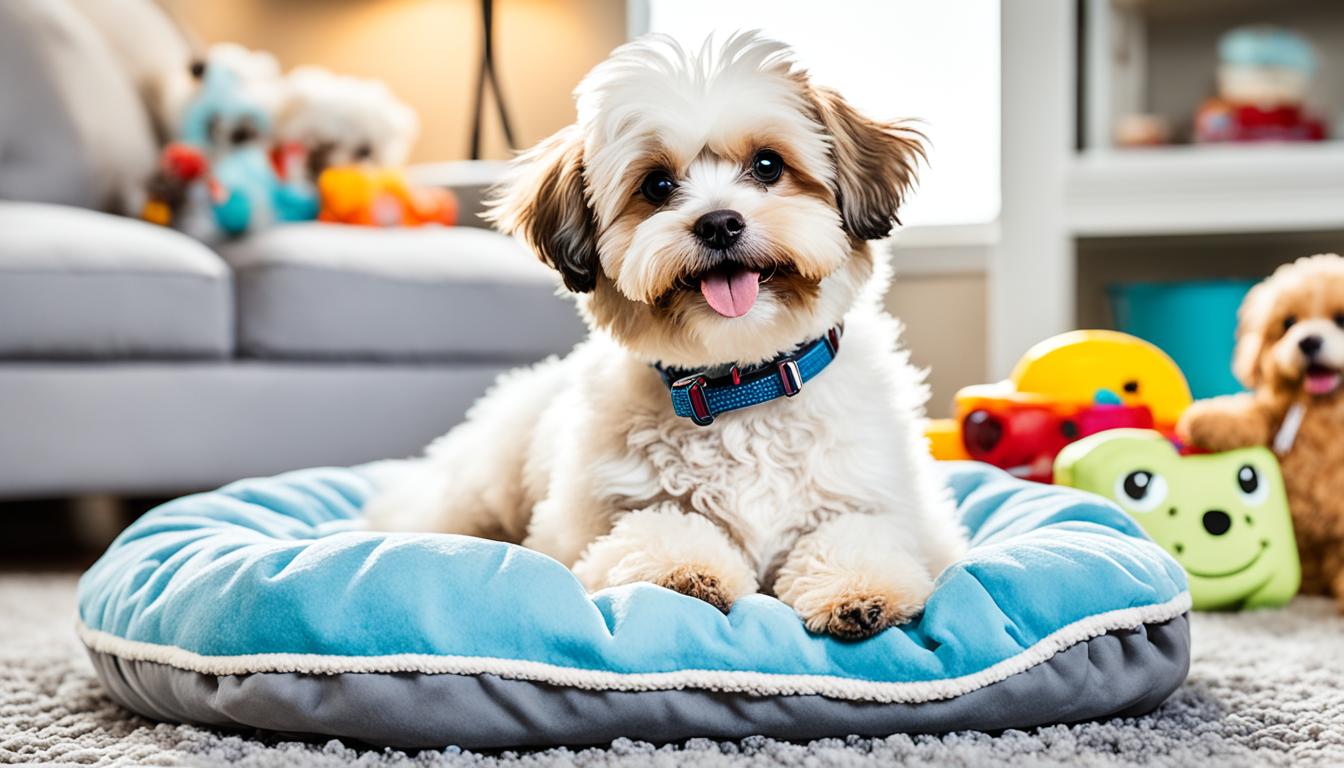
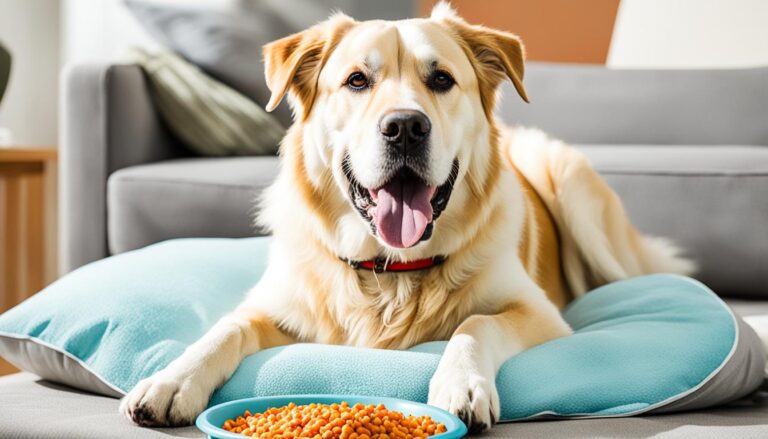
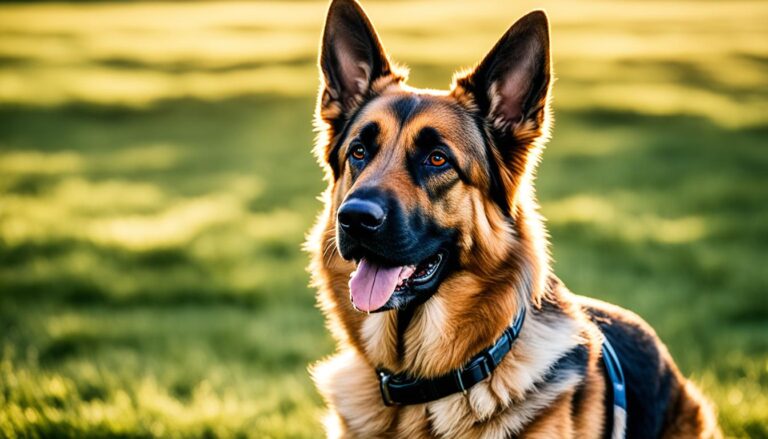



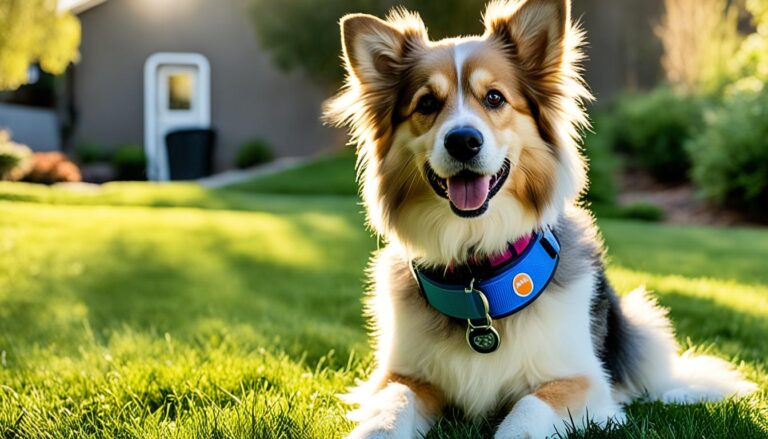
One Comment